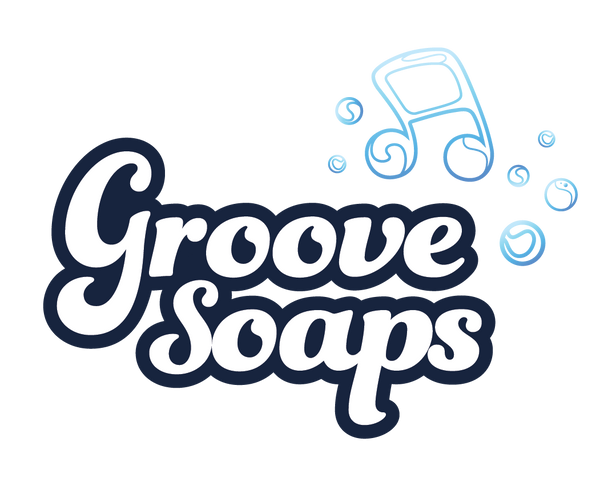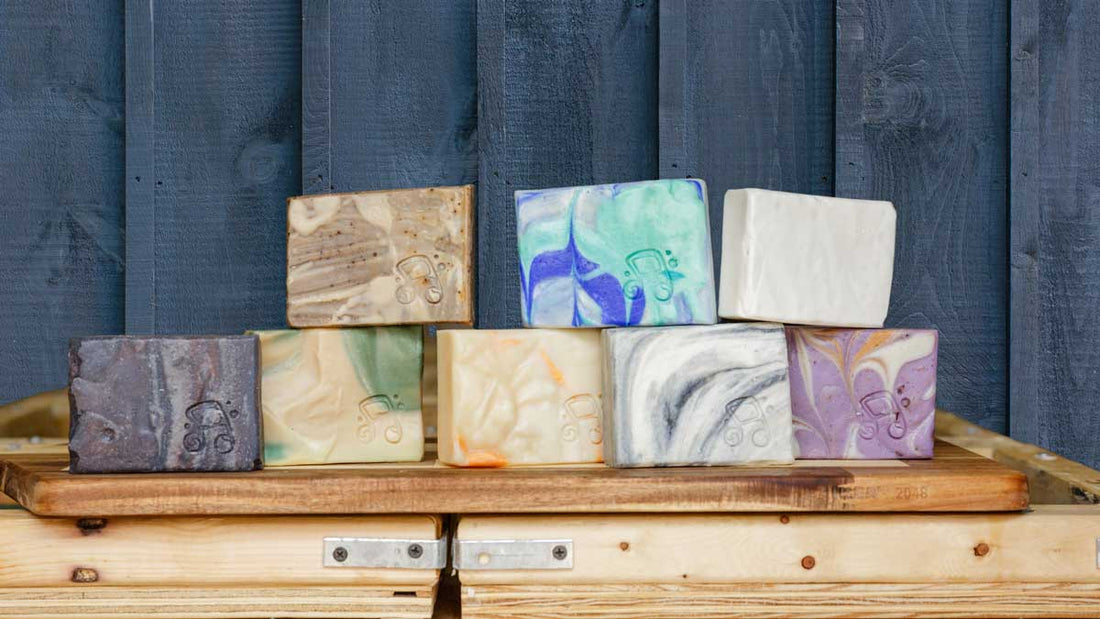
As traditional soap makers, one of the many questions we hear from our customers is why we stick to mainly making bar soaps. Why don’t we also do liquid soaps? Which always leads us into a deep discussion about soap.
The Great Bar vs Liquid Soap Debate
Both liquid soap and bar soap are effective against bacteria and viruses--and we might delve into crafting liquid soaps in the future!--but for now we want to explain the differences between the two. But before we get into those differences, we’ve got to put some of the nasty rumors about bar soap to put to bed.
Bar Soap Myths:
Myth #1: Bar Soap Carries Germs
If you’re worried about bacteria on bar soaps, remember that our smartphones are dirtier than the typical toilet seat but we touch our phones (and then our faces) all the time! Besides, bacteria on bar soap washes off every time you use it, so there’s no need to worry about it contaminating your skin. The CDC does recommend storing bar soap in a dish with proper drainage so that it doesn’t sit in puddles of water but otherwise it is considered to be very safe. And to further put this myth to rest, there has never been any scientific research that shows germs can be passed person to person via a bar of soap.
Myth #2: Bar Soap is Inconvenient
Actually, bar soap is super convenient! Simply lather it up in your hands and apply the lather all over your body, or wet the soap and apply it directly over your body! It’s not that different from using liquid soap.
Myth #3: Bar Soap Dries Out Your Skin
While this can be true of some bar soaps with a high pH level, this isn’t always the case. There are many different bar soaps on the market that have low or neutral pH levels, which are less drying. Not all bar soaps are created equal!

Advantages of Bar Soap
There are many advantages to bar soap, and we aren’t just saying that because we make them. Here are some rockin’ advantages of bar soap:
Bar soap gets dirt moving!
The friction created by rubbing the bar against your hand can be more effective at removing debris like visible dirt.
Bar soap is usually more cost-effective than liquid soap.
A bar of soap typically lasts longer than a bottle of liquid soap. Though the price of artisan made bar soaps are often more expensive than liquid soaps, consumers typically use approximately seven times more liquid soap than bar soap at a time. Using significantly more liquid soap than bar soap can be more damaging to your wallet in the long run.
Bar soap is a more sustainable option.
It usually comes in boxes made of thin cardboard, which uses less material than the thick plastic that liquid soap bottles are made of. A 2009 study in Environmental Science & Technology determined almost 20 times more energy is required in product packaging for plastic soap bottles than producing cardboard or paper packaging for bar soap.
Most bar soaps contain fewer ingredients than liquid soap.
Most bar soaps contain fewer, and more natural, ingredients than liquid or foaming soaps. Take our soaps, for example, we only use 6 ingredients: coconut oil, sustainable palm oil (RSFO palm oil), canola oil, olive oil, castor oil, and vitamin E.
People with allergies or sensitive skin do better with soaps that contain fewer ingredients—and the ones they do have are more natural. They should also avoid fragrances and colors. That’s usually easier to find in bar soap formulations.
Bar soaps are lighter and last longer.
What does this mean? A much lower overall carbon footprint. It takes 9 times more energy to transport liquid soap than bar soap.
Bar soaps don’t contain preservatives.
Bar soap doesn’t need preservatives to remain effective, fresh, and safe to use. All other types of washes that use liquid must contain preservatives (although not all preservatives are harmful).
Bar soaps are great for air-travel.
If you’re a light packer, you’d probably appreciate the ability to bring bar soaps in your carry-on without worrying about the liquids restriction.
Bar soaps are better than hand-sanitizer.
Most experts agree that soap is overwhelmingly preferred over hand sanitizer. Unlike sanitizers, soap actually emulsifies and removes dirt, germs and gunk making it technically the cleanest way to clean.
Bar soaps are a great way to support small businesses.
Most brands of body washes, shampoos and conditioners are owned by one of a few large and powerful fast-moving consumer goods corporations. On the other hand, there are lots of passionate soap makers that operate small businesses with great ethics - like ours!

Regardless of what type of soap you use, the most important thing is to make sure that you are washing your hands correctly. It's not hard, we promise. Just follow these five basic steps:
- Wet your hands. Turn on the water and wet your hands.
- Apply soap. Many folks like to apply soap first and then wash it away when they turn on the water. Soap needs to be used on wet hands to work. You’ll be able to see suds if you’re doing it right.
- Rub your hands together. Make sure to scrub between your fingers and up your forearm. Do this for 20 - 30 seconds at least!
- Rinse thoroughly. You want to make sure that any of the germs the soap kicked up has washed off your hands and down the drain.
- Dry your hands. No, not on the kitchen towel you use to dry dishes, carry hot plates or clean off the counter! Dry hands on a designated hand towel or use a paper towel.
So there you have it! All the reasons why we are so passionate about making the highest quality, plant-based, handcrafted bar soap!

